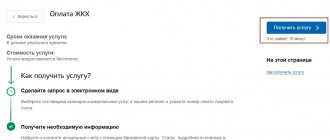The limitation period for real estate transactions is a factor that curbs the number of disputes over an apartment and is aimed at increasing the stability of civil turnover. This allows the buyer not to check all the risks from the date of construction of the apartment and not worry about the risks during the entire period of ownership of the apartment.
The limitation period is the period for protecting the right under the claim of a person whose right has been violated. After the expiration of the specified period, a person who believes that his rights have been violated, of course, has the right to go to court, but it is enough for the second party to file an application about the expiration of the statute of limitations, and the court will refuse to satisfy the claim.
+7
921 904-34-26 Real estate lawyer in St. Petersburg
○ Legislative regulation of the issue.
Depending on each specific situation, real estate transactions, including paid and gratuitous transactions, are regulated by:
- In cases of disputes concerning family relationships (for example, division of property or challenging a will) - by the norms of the Family and Housing Code of the Russian Federation (LC RF).
- In matters relating to the legality and procedure for the exercise of property rights - the Civil Code of the Russian Federation (Civil Code of the Russian Federation).
- In cases of fraud caused with the intent of significant damage to the victims - using the norms of the Criminal Code of the Russian Federation (CC RF).
○ General statutes of limitations for real estate transactions.
Having studied the norms of Art. 196 part 1 of the Civil Code of the Russian Federation, we see:
- In general, the statute of limitations on when you have the right to bring your claims regarding issues related to a real estate transaction is three years. Important! The statute of limitations is counted not from the moment of conclusion of the transaction itself or other transactions with real estate (for example, exchange), but from the day when you learned or should have learned that your rights were violated by an opponent, or who is the proper defendant (Article 200 p. 1 Civil Code of the Russian Federation).
- The maximum limitation period when you can apply to restore your rights is limited to 10 years.
This period is acceptable in case of restoration or extension of the period with sufficiently compelling, documented reasons proving good reasons why it was missed.
✔ Can it be extended?
As such, there is no concept of extending the statute of limitations in the legislation.
Here you need to approach it individually, taking into account specific circumstances.
Because the law says that the period begins to count from the moment you learn about the rights being violated.
For example, if you become aware of hidden defects a year after the transaction has been completed, you can naturally go to court before the expiration of 4 years after the fact of purchasing the property.
The situation is similar when the guilty party admitted its actions were illegal and violated your rights.
In case of inaction and failure to take measures to eliminate violations, the limitation period begins to count from the moment when the guilt (or debt obligations) was recognized, that is, the period is extended.
✔ Can it be restored?
The legislator provided for the norms of Art. 205 part 1 of the Civil Code of the Russian Federation, cases when the deadline for filing a claim can be restored.
In order for the court to consider the circumstances that prevented a timely appeal to be valid, they must relate directly to the personality of the plaintiff.
The period will be restored if the reasons that did not allow you to exercise the right to protect your interests occurred in the last six months before the end of the statute of limitations, or if within 6 months it was not possible to take any measures.
Limitation period for completed real estate transactions, depending on the type
Having your own roof over your head is perhaps the most pressing issue for every person. But situations are different and you can easily fall for scammers or simply not know that other people have appropriated your property. Is everything really so hopeless and gloomy and there is no way to change the situation?
There is always a way out, and it is not necessary to break the law and restore justice yourself. The legislator gives us an effective “weapon” - statute of limitations, which will help challenge a real estate transaction. Let's learn how to use this legal category.
“Insignificant” deal – restoring justice
This category of transactions includes legal relations in which one of the parties simply did not have the right to enter into it. For example, they signed a contract for the purchase and sale of an apartment, and the fraudster skillfully concealed that he was not the owner (for example, he presented an invalid power of attorney). Or you made an exchange with a person who has nothing to do with the apartment.
○ How to restore or extend the statute of limitations?
If you missed the deadline when you could claim protection of your rights, do not give up, and if there are sufficient grounds, restore it.
✔ Where to contact?
In the event that the reasons why you were unable to file a claim in a timely manner are truly valid and you can prove them (preferably with documents, but possibly with testimony), along with the claims, submit a separate application to the court to restore the statute of limitations.
✔ What documents should I provide?
Naturally, the list of documents confirming the validity of your request to restore the statute of limitations depends on the very reasons why you were unable to apply in a timely manner.
Suitable:
- Certificates from medical institutions stating that you were undergoing treatment for health reasons.
- Medical reports confirming the need for constant care for a sick relative in another city.
- Evidence of residence in another region during the limitation period, unless this depends on your wishes. For example, long business trips, being in prison or serving in the Army.
- Requests sent by you to clarify the location of the defendant.
And other documents proving that you really could not file a claim.
You can also, in the application where you ask to restore the period for consideration of the claim, petition for an official request to the appropriate authorities to request documents confirming the validity of the circumstances that prevented you from protecting your rights.
✔ How long to wait?
In accordance with the norms of paragraph 1 of Art. 154 of the Code of Civil Procedure of the Russian Federation, the court is given time within two months from the date of your application to restore the period for consideration of the main claim in order to make a decision on the merits.
The limitation period for an oral contract is calculated from the moment the obligation to pay arises
Vladimir Betelin filed a claim with the Moscow Arbitration Court against Bella Raevskaya and JSC VTB Registrar. In his statement, he demanded to terminate the purchase and sale agreement for shares of JSC CB Korund-M in the amount of 310 million rubles. The plaintiff indicated that this agreement was concluded orally between him as the seller and the deceased husband of the defendant, Alexander Stavitsky, as the buyer. The applicant also asked the court to oblige Bella Raevskaya to return the securities to him, and the registrar to record the transfer of rights to the shares in the register.
The first instance supported the plaintiff, but the appeal overturned the decision
Vladimir Betelin explained that in March 2011, a framework agreement was concluded between him and Alexander Stavitsky, in which the plaintiff undertook to sell part of the shares of JSC KB Korund-M, the number and cost of which should be determined in a separate agreement. Later, the parties verbally agreed on the number of shares to be alienated, but did not agree on the price and deadline for its payment. Therefore, the plaintiff believed that the shares had to be paid at market value, which as of 2021, according to the appraiser’s report, was RUB 310 million. Since the buyer did not pay for the shares, the applicant demanded that the sale and purchase agreement be terminated and the shares returned to him.
Refusing to satisfy the claims in case No. A40-169343/2018, the first instance proceeded from the fact that Betelin did not provide any evidence of the existence of a relevant agreement between him and Stavitsky, and also could not confirm the fact of non-payment of the purchase price. Moreover, the court noted, the applicant did not substantiate that the shares were acquired by Alexander Stavitsky in a paid transaction from him.
The Moscow Arbitration Court rejected the plaintiff’s argument about the exclusively oral nature of the transaction, since it considered it to contradict the documents submitted to the case file. He noted that from the journal of incoming documents of CB Korund-M it was clear that there was a contractual relationship for the transfer of shares between Vladimir Betelin and Bella Raevskaya’s husband. However, the applicant did not prove either the remuneration of such relations or the existence of debt on the part of the buyer. According to the court, Betelin was unable to confirm that the parties agreed on a specific procedure, timing and amount of payments for the shares.
In addition, the first instance pointed out that the plaintiff missed the statute of limitations. She proceeded from the fact that the plaintiff went to court only 7 years after the transfer of shares. Vladimir Betelin, justifying his right to claim, believed that payment for securities must be qualified as an obligation on demand. Accordingly, the statute of limitations must be calculated from a later point - the day they presented the corresponding demand in March 2021. However, the court considered that, unless otherwise proven, it is assumed that the buyer must pay for the purchase of shares immediately before or immediately after the transfer of securities (p 1 Article 486 Civil Code).
In addition, the court saw in the actions of the plaintiff signs of abuse of rights, since he did not demand payment for the shares during the life of his counterparty, but announced such a need only 2 years after Stavitsky’s death.
The Ninth Arbitration Court of Appeal overturned the decision of the lower instance and satisfied the claim of Vladimir Betelin. The appeal considered both the conclusion of an oral paid agreement for the sale and purchase of shares and its execution on the part of the applicant to be proven. The court noted that the condition on the subject was agreed upon by the parties and this was confirmed by data from the company’s registration journal dated June 20, 2011. This document indicates the product - shares of a certain issue of a specific issuer, as well as the number of securities. The court considered that this confirms the agreement of all essential terms of the contract.
In addition, the Ninth AAS emphasized that the statute of limitations for this dispute began to run on March 13, 2021, the day of expiration of the ten-day period established in the plaintiff’s demand for payment of shares, which he presented on March 3 of the same year. The court also indicated that there were no signs of abuse of rights in the plaintiff’s actions.
The cassation established that the statute of limitations had passed
Bella Raevskaya appealed the appeal ruling to the Arbitration Court of the Moscow District, asking to uphold the decision of the first instance. In the cassation appeal, she, in particular, pointed out the erroneous conclusion of the appellate court about the existence of a paid oral agreement for the purchase and sale of shares, as well as the omission of the statute of limitations and abuse of rights on the part of the plaintiff.
The Court of Cassation reminded that in order to make an entry in the register about the transfer of rights to securities, it is necessary to submit a transfer order to the registrar. The case materials contained copies of the company's incoming document journal and registration journal, which contained a reference to the transfer order and the securities purchase and sale agreement presented by Vladimir Betelin on June 20, 2011. However, the plaintiff did not provide the text of the agreement and the transfer act. His representatives explained at the cassation court hearing that the agreement with the deceased Stavitsky was concluded orally. Based on this, the district court concluded that it was impossible to establish the terms of the agreement (the specific procedure, terms and amounts of payments for shares) and, accordingly, the existence of debt under it.
The cassation, like the first instance, considered the statute of limitations to have expired. She indicated that, as a general rule, in accordance with paragraph 1 of Art. 486 of the Civil Code of the Russian Federation, the buyer is obliged to pay for the goods immediately before or after its transfer. In this case, the court noted, it is impossible to clearly establish that the oral agreement did not provide for a deadline for its execution. Considering the transfer of the right to shares to Stavitsky in 2011, the parties to the agreement had legal certainty regarding their payment on the basis of clause 1 of Art. 486 of the Civil Code of the Russian Federation, the cassation agreed with the defendant’s argument that the plaintiff missed the statute of limitations.
The Arbitration Court of the Moscow District considered the decision of the first instance to be legal and justified, and therefore upheld it, canceling the appeal decision.
Experts agreed with the legality of the oral form of the transaction
Lawyer of MCA "SED LEX" Valeria Arshinova noted that it is not easy to evaluate the decision of the Arbitration Court of the Moscow District without seeing all the documents on the case. “But, in my opinion, the act of the Ninth Arbitration Court of Appeal is more justified. I think the Supreme Court may accept the cassation appeal for consideration if it is filed,” she said.
The lawyer said that the law does not provide for special rules on the timing of execution of an oral agreement. She indicated that the general provisions on purchase and sale apply to the share purchase and sale agreement, unless otherwise provided by law (clause 2 of Article 454 of the Civil Code of the Russian Federation). These rules, according to Valeria Arshinova, do not provide for a mandatory written form of the purchase and sale agreement. “To transfer shares to the buyer, it is enough to draw up an order to complete the transaction or an instruction to the depositary, if the depository keeps records of rights. On this basis, the registrar or depositary makes an entry in the register of shareholders,” the lawyer explained.
In relation to this dispute, Valeria Arshinova referred to the applicable Regulations on maintaining a register of owners of registered securities, approved by Resolution of the Federal Commission for the Securities Market of the Russian Federation dated April 2, 1997 No. 27, which does not apply from August 21, 2021 in connection with the publication of the Bank of Russia Directive dated 27 December 2021 No. 4254-U. This provision established that in order to make an entry in the register about the transfer of rights to securities during a transaction, it is necessary to submit a transfer order.
The lawyer recalled that the condition of the purchase and sale agreement on the price of shares can be agreed upon by one of them accepting the offer of the other party, by jointly developing this condition during negotiations, or in another way. “In the absence of an agreement between the parties, this condition can be fulfilled according to the rule on the price that, under comparable circumstances, is usually charged for similar goods,” said Valeria Arshinova.
○ Advice from a lawyer:
✔ We bought an apartment five years ago, now it turns out that the real estate office sold it with violations, will it be necessary to return the apartment?
Considering that the general statute of limitations, in accordance with the provisions of Article 196 of the Civil Code of the Russian Federation, is 3 years, you can sleep peacefully, no one will take your housing away from you. Even if the realtor violated the rights of the Seller, who instructed the agent to carry out a transaction with his apartment, all claims can only be against the company itself, and then only if the statute of limitations is restored.








